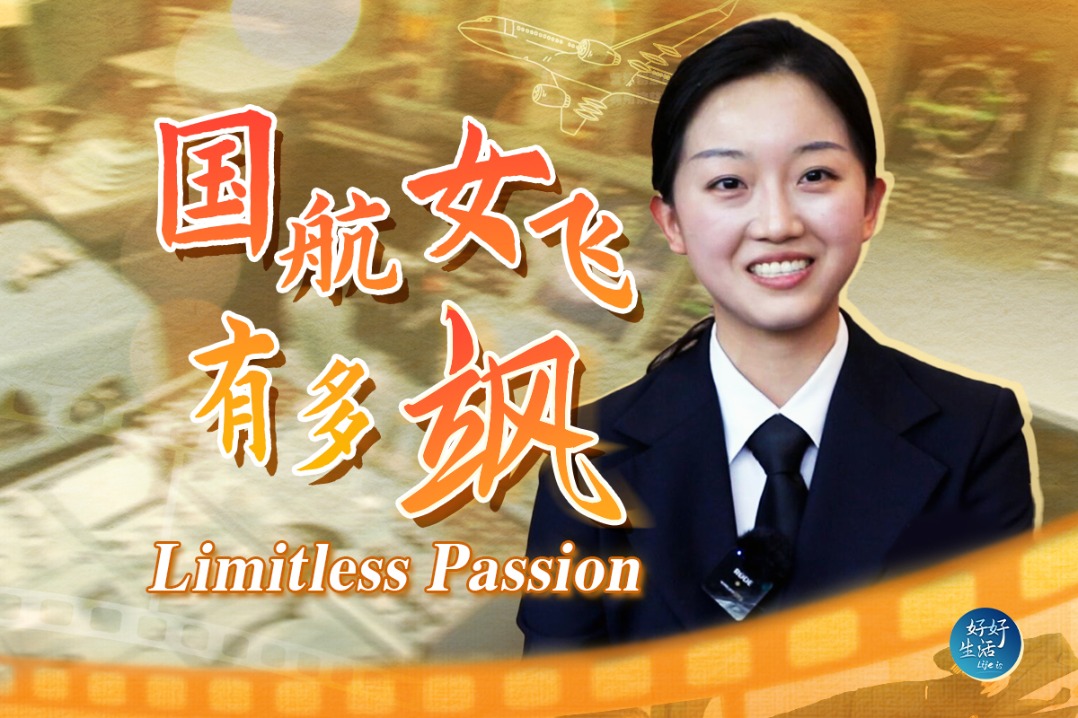From the heartland, bilateral comity sought
By MAY ZHOU in Houston | China Daily Global | Updated: 2023-04-13 10:02
The relationship between the US and China might be at a low point. but it is heartwarming to see that interaction from both countries is still taking place, said an advisor on China at the Carter Center.
Senior advisor Yawei Liu was referring to the virtual think tank dialogue of the 2023 US-China Agriculture Roundtable organized by the US Heartland China Association (USHCA) on Tuesday night.
At the discussion, about a dozen researchers, scientists and professors from both countries shared with each other how to address rural development challenges and changes in their respective country, as well as challenges to achieve optimal health outcomes for people, animals, plants and their shared environment.
Besides discussing issues such as how to deal with food-borne diseases and other environmental issues, participants also shared stories of how to deal with changes in their own countries.
Jason Henderson, professor and vice-president for extension and outreach programs at Iowa State University discussed the US agricultural production shift from low-cost and high-quantity — cheap goods in mass quantity — to more focus on food quality, nutritional value and if it is produced in a sustainable way. Such a trend is forcing rural communities to focus on a people-based development policy, said Henderson.
Xu Jin, associate professor and assistant dean of the College of International Development and Global Agriculture at China Agricultural University, shared a story about how a depopulated village in Yunnan turned idled houses to restaurants, meeting rooms, a café and book bar, and Airbnb rooms to make the village into an attractive tourist destination. The changes help sustain local economic development when agricultural production is no longer sufficient.
Kenneth Quinn, strategic advisor to the USHCA and president emeritus of the World Food Prize Foundation, said that the roundtable, in its third year, is a new type of diplomacy.
"Given that the relationship between our two governments has become more and more difficult, the model we developed has become a new and very interesting way to conduct diplomacy," said Quinn at the discussion.
"By having nongovernmental organizations like the USHCA and CASS (the Chinese Academy of Social Sciences) inviting governmental officials, they are more easily (able) to come together to speak," Quinn said. "This new type of diplomacy, not in capitals, but in agricultural … provinces and by having nongovernmental organizations inviting officials to participate, we are able to have productive dialogues."
Quinn said that he hopes such diplomacy could prompt the US and China to rise to the challenge of feeding billions of the world population with sustainably and efficiently produced nutritious food.
A letter was shared at the dialogue that was addressed to US President Joe Biden and Chinese President Xi Jinping in the form of paid advertisement in The Wall Street Journal last week. It was given as an example that many other American leaders want to see the US and China have a better and engaging relationship.
The letter, titled "On the Need to Stabilize Bilateral Relationship", was signed by more than 20 US business and policy leaders, including three former US ambassadors to China, a few former federal officials, leaders of think tanks and businesses, and a co-founder of Home Depot.
The lead signer was Maurice Greenberg, chairman and CEO of CV Starr and Co. He founded a group composed of senior US business and policy leaders to promote dialogue between the US and China last July.
"We are writing to encourage the leadership of both the United States and China to work together diligently to repair and stabilize the state of affairs between our two countries. We call for more robust dialogue now to alleviate the heightened temperature and better manage our many differences," the letter said.
Alarmed by "the recent, alarming deterioration in bilateral relations", the letter stated that "pursuing a path to conflict is untenable and would likely lead to one of humankind's most unfortunate chapters".
"It is in the national interest of both countries to reestablish a constructive dialogue based on mutual respect and a genuine desire to heal the relationship with courage and wisdom," the letter said.
























